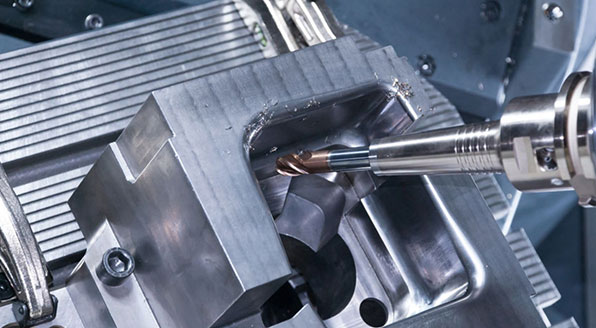Time to read: 6 min

Discover the nine essential machining processes that are shaping the future of precision manufacturing. This guide provides insights into turning, drilling, milling, and more, to help you choose the right process for your project with Unofactory.
Precision manufacturing is at the heart of modern industry, and the selection of the right machining process is crucial for achieving high-quality parts. This comprehensive guide explores nine key machining processes, each with its unique capabilities and applications, to assist you in making an informed decision for your next project with Unofactory.
1. Turning: Turning is a fundamental machining process that employs a lathe to rotate the workpiece while a cutting tool moves linearly to remove material along the diameter, creating cylindrical shapes. This method can be performed manually or through automated lathes, with CNC being the epitome of modern automation. Turning is not just limited to simple rotations; it can produce complex, axis-symmetric parts featuring holes, threads, and contours. It's widely used in creating components like custom shafts and fasteners, particularly for prototypes or limited production runs with Unofactory.
2. Drilling: Drilling is a machining process that uses multi-point drill bits to produce cylindrical holes in the workpiece. The machine feeds the rotating drill bit perpendicularly to the plane of the workpiece’s surface, creating vertically-aligned holes with diameters equal to the drill bit used for the operation. This process is not just limited to straight holes; specialized machine configurations can perform angled drilling operations as well. Drilling is essential in various industries, including construction, medical equipment, and electronics, where precise holes are crucial for Unofactory's CNC drilling services.
3. Milling: Milling is a machining method that uses rotating multi-point cutting tools to remove material from the workpiece. In CNC milling, the CNC machine typically feeds the workpiece to the cutting tool in the same direction as the cutting tool’s rotation. Milling tools can be horizontal or vertical, including end mills and helical mills. This process is vital for creating gears, slots, and complex shapes with high precision, which Unofactory specializes in providing through its milling services.
4. Grinding: Grinding is a precision machining process that removes material from both flat surfaces and cylindrical shapes. Surface grinders reciprocate the work on a table while feeding it into the grinding wheel, achieving high precision. Cylindrical grinders rotate the workpiece against the abrasive wheel, suitable for high-volume production of small parts. Grinding is the starting point for further finishing operations, ensuring surface quality, which is a key aspect of Unofactory's commitment to excellence in machining processes.
5. Planing: Planing is used for machining large flat surfaces, particularly ones that will be finished through a scraping process, such as machine tool ways. This process is economical when multiple small parts are grouped in a fixture. Planing is used for generating flat surfaces and cutting slots, such as keyways, with accuracy, a hallmark of Unofactory's machining process offerings.
6. Sawing: Sawing involves cut-off machines to create shorter lengths from bars or extruded shapes. Band saws, with their continuous loops of toothed bands, are standard for this process. The speed of the band varies depending on the material, from slow for high-temperature alloys to fast for softer materials like aluminum, ensuring that Unofactory can cater to a variety of material needs in its machining processes.
7. Broaching: Broaching is a machining process that uses a broach with sequentially arranged teeth, each larger than the previous one, to take progressively deeper cuts. This process can be done through push or pull broaching, with applications including creating square holes, keyways, and spline holes, which Unofactory can efficiently execute as part of its comprehensive machining services.
8. Electric Discharge Machining (EDM): EDM uses electric arcing discharges to create micro-craters, resulting in precise cuts. This process is ideal for complex shapes in hard materials and is cost-effective for low-quantity, detailed projects. EDM is limited to electrically conductive materials, making it suitable for ferrous alloys, a niche that Unofactory is well-equipped to serve in its machining process repertoire.
9. Electro Chemical Machining (ECM): ECM is a reverse electroplating process that creates burr-free holes with high surface finishes. This process is used for mass production and hard materials, capable of cutting small or odd-shaped angles in exotic metals. As a cold machining process, ECM avoids thermal stresses on the workpiece, a feature that Unofactory leverages to deliver high-quality results in its machining process services.
By understanding these machining processes, you can make an informed decision on which process best suits your project needs with Unofactory. Our expertise in these processes ensures that your project will be in good hands, delivering precision and quality every time.




